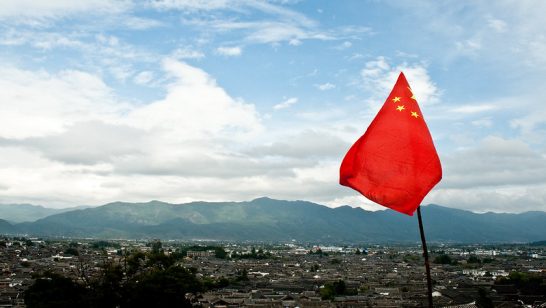
This piece is part of a new ELN series on the P5 Process exploring national viewpoints from the five nuclear-weapon states ahead of the NPT Review Conference.
Following the P5 Conference in Beijing on 30-31 January 2019, Russian Deputy Foreign Minister Sergey Ryabkov acknowledged that the P5 was embroiled in a “sea of troubles of a complex and pressing nature.” Adding that, “Unfortunately, there is no progress. The US position remains rather tough and ultimatum-like. We told the US side that it is impossible to hold a dialogue based on an attempted blackmail of Russia.”
It is apparent that the deep antagonism and mistrust, which permeate relations among the NWS, are spilling over into their interactions within the P5 Process. Moscow points out that the lack of tangible deliverables is also causing a serious impediment to the effectiveness of the P5 Process.
Originally, the P5 Process was established to facilitate cooperation on nuclear disarmament verification, which was meant to serve as a stepping stone to multilateral disarmament and as a means to demonstrate the NWS’s shared commitment to fulfilling their obligations under Article VI of the NPT. It has, however, proved difficult to engage any other member of the P5 besides Russia and the United States in arms control and broader disarmament negotiations. Instead of focusing on physical reductions of nuclear weapons and their delivery systems, it might be worthwhile to explore different steps towards disarmament.
Irrespective, Russia continues to voice its support for multilateral disarmament measures, though with a caveat that these measures should include all NWS and should not just be limited to the United States, Russia, and China. As President Vladimir Putin purported, “If we were to bring in China, why wouldn’t we also seek to engage others? Let’s bring in France, the United Kingdom and countries that are not legally recognized as nuclear-weapon states…”
It is important to note that obligations set out in Article VI of the NPT are not confined to physical limitation and numerical reduction of nuclear arms and forces. The key point of the Article is, arguably, the obligation to negotiate in good faith. Those negotiations can take various forms and address a variety of topics. Here one example could be activities that promote transparency with regard to nuclear policies and doctrines. Russia views transparency measures as an effective tool to combat the misperceptions and misinformation surrounding military doctrines. At the 10th NPT Review Conference, Russia, together with the rest of the P5, is set to participate in a dedicated side-event to discuss nuclear policies and doctrines of the P5 countries. If the side event goes well, we could see some easing of tensions between the NWS and the non-nuclear-weapon states (NNWS), which in turn should inspire more fruitful exchange during general deliberations among the NPT state parties.
Building mutual understanding of each other’s nuclear doctrines is an important area of work within the P5 but it is far from being the only one. Key issues of concern for the P5 currently also include expansion of the P5 Glossary of Key Nuclear Terms, technical aspects of a Fissile Material (Cut-Off) Treaty, universalisation of the protocol to Southeast Asia Nuclear-Weapon-Free Zone, and promotion of peaceful uses of nuclear energy.
Russia gives the utmost importance to carrying forward cooperation in the safe, secure, and peaceful use of nuclear energy and believes the next NPT Review Conference would benefit greatly from increased attention to cluster III issues dealing with the use of nuclear energy for peaceful purposes. If Russian efforts to facilitate discussion on this topic receive the support of the other P5 states, it might lead to a more successful outcome of the Review Conference.
During the 2019 Moscow Non-Proliferation Conference Minister Ryabkov pointed out another major challenge to the nuclear non-proliferation regime – the emergence of proliferation risks resulting from the desire of “states that are located in difficult regions” to ensure their national security through the manufacture or acquisition of nuclear weapons. He explicitly called on the rest of the NWS to meet and discuss this challenge as part of the P5 Process.
Another outcome that Russia hopes to achieve through cooperation within the P5 Process is a reaffirmation of the Reagan-Gorbachev injunction that “a nuclear war cannot be won and must never be fought.” The idea to revive the principle was put forth by Russian Foreign Minister Sergey Lavrov in October 2018. It was likely born out of Russia’s frustration with the 2018 US Nuclear Posture Review and concerns about Washington’s plans to withdraw from the Intermediate-Range Nuclear Forces Treaty.
Subsequent discussion among the P5 stressed the necessity to renew the Reagan-Gorbachev principle in a joint declaration. The drafting process is currently underway. Russia purports that the Reagan-Gorbachev statement should be reaffirmed in “a clear and unambiguous way and, if possible, further strengthened by adding that engaging in a nuclear war in today’s world would be that much more dangerous given the emergence of new challenges created by modern technologies.”
Despite its shortcomings, the P5 Process presents the NWS with unique opportunities and an array of potential benefits. In the face of a long-standing deadlock in the Conference on Disarmament and the problems that plague the UN Commission on Disarmament, which is also badly in need of revitalisation, the P5 Process might very well be that one forum that would actually help advance the disarmament process further. We will just have to wait and see.
The opinions articulated above represent the views of the author(s) and do not necessarily reflect the position of the European Leadership Network or any of its members. The ELN’s aim is to encourage debates that will help develop Europe’s capacity to address the pressing foreign, defence, and security policy challenges of our time.
Image: Flickr: Dmitry Djouce



